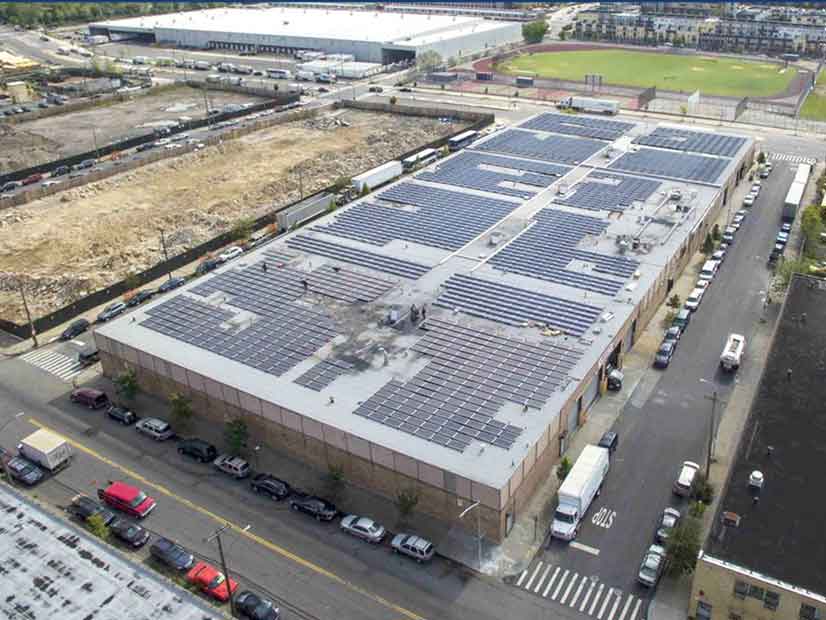NYISO on Tuesday proposed to exempt most new installed capacity (ICAP) suppliers from buyer-side market power mitigation (BSM) evaluation if they use solar, wind, storage or demand response.
“We think these technology types have a limited ability to impact ICAP prices over the long run, and that these technologies are really key and critical to achieving the state’s [environmental] policies,” Michael DeSocio, NYISO director of market design, said in delivering a presentation to the Installed Capacity Working Group.
The state’s Climate Leadership and Community Protection Act (CLCPA) requires the procurement of large amounts of renewable energy resources to get to zero-emission electricity by 2040, and the ISO wants to integrate these new resources into the capacity market while fulfilling its duty to maintain reliability with just and reasonable rates for all resources, he said.
The ISO proposes to retain the current mitigation regime, including the competitive entry exemption, the self-supply exemption and the supply-side mitigation construct, which with certain modifications continues to appropriately protect against the exercise of buyer-side market power, DeSocio said.
Making changes only to the BSM rules to exempt certain public policy resource types that are identified by the tariff and needed to meet the CLCPA mandates will allow the market to continue to produce just and reasonable ICAP prices needed to continue to meet the resource adequacy needs of the system while avoiding conflicts with state policy, he said.
Details
The BSM proposal would create a set of rules that allows the wholesale markets to be more compatible with the current state policies, DeSocio said. The ISO in June unveiled a plan and timeline for revising its BSM rules to expand resources’ exemption eligibility by the end of the year. (See NYISO Soliciting Stakeholder Input on Changes to BSM.)
As these types of resources enter service in increasing numbers, their capacity value decreases, whether participating as a special case resource or distributed energy resource, DeSocio said. The ISO is also considering whether external unforced capacity deliverability rights (UDRs) may be exempted from BSM.
NYISO actually addressed some of this effort as part of its existing capacity rules with respect to capacity accreditation for limited-duration resources, DeSocio said.
“However, when we devised those specific rules, that was before CLCPA became the law. … The current construct doesn’t actually get evaluated quickly enough to keep pace with where the market is going, with where the policies are driving the resource mix to go,” DeSocio said.
It’s important to re-evaluate the timing of the execution of the capacity accreditation rules, he said, but also to think more broadly to make sure the ISO is thinking about all the existing technologies and how their capacity values are measured and identified.
NYISO still believes the modifications to the Part A rules, which were originally rejected by FERC in 2020 and are being held in abeyance on appeal, will provide useful improvements regardless of any larger BSM proposal, he said. Part A exempts a new resource from BSM if the forecast of capacity prices in its first year of operation is higher than the default offer floor.
Some stakeholders questioned NYISO’s rationale for not including hydropower in its list of exemption-worthy resources. DeSocio said hydro resources are unlikely to be a source of new builds in New York.
DeSocio said the ISO is working with the Analysis Group to conduct a study on how the capacity market responds to meeting CLCPA goals and how to allow these resources to come in without any mitigation measures. The BSM analysis should be ready for stakeholder review by September, he said.
NYISO staff will return to the ICAP Working Group on Aug. 5 to respond to feedback and review current capacity accreditation practices, and again Aug. 9 to discuss the supporting BSM analysis and assumptions, as well as capacity accreditation principles and proposed changes.



